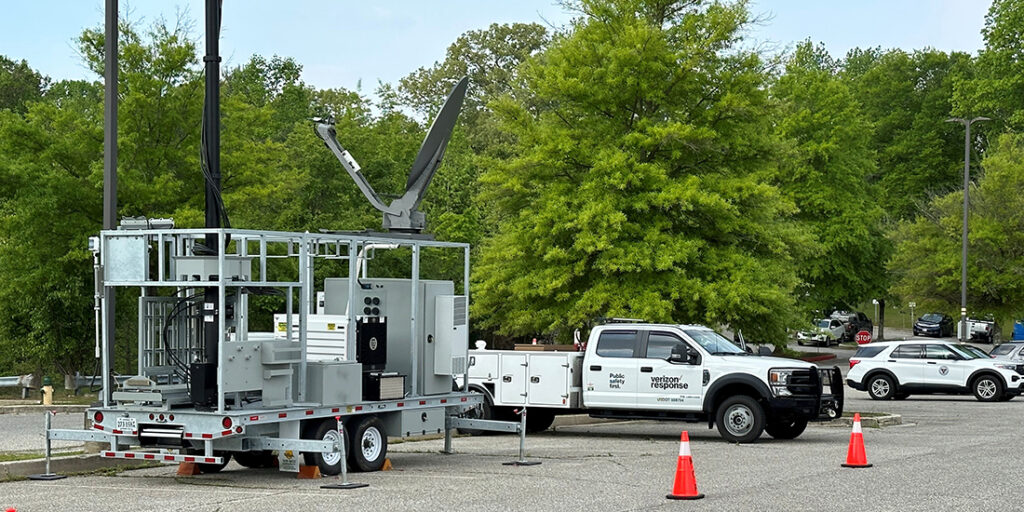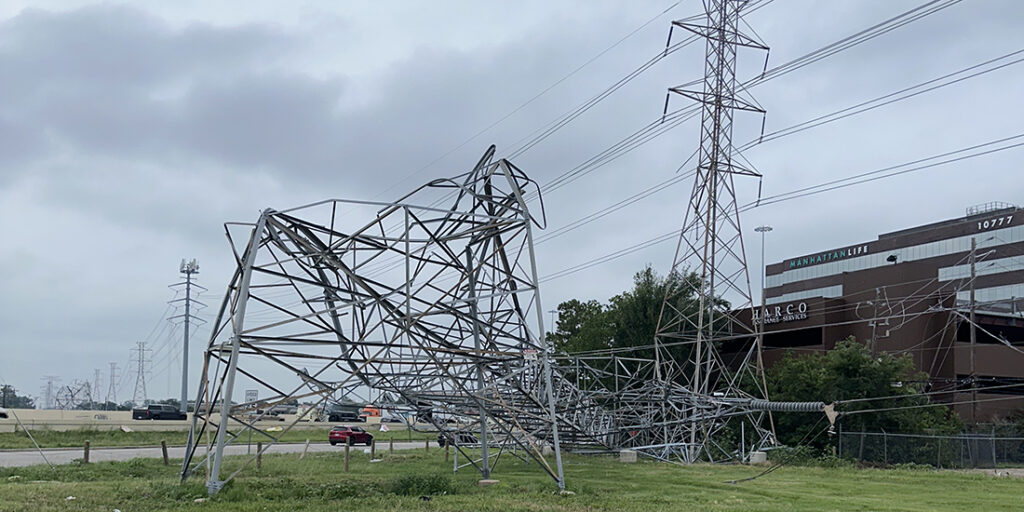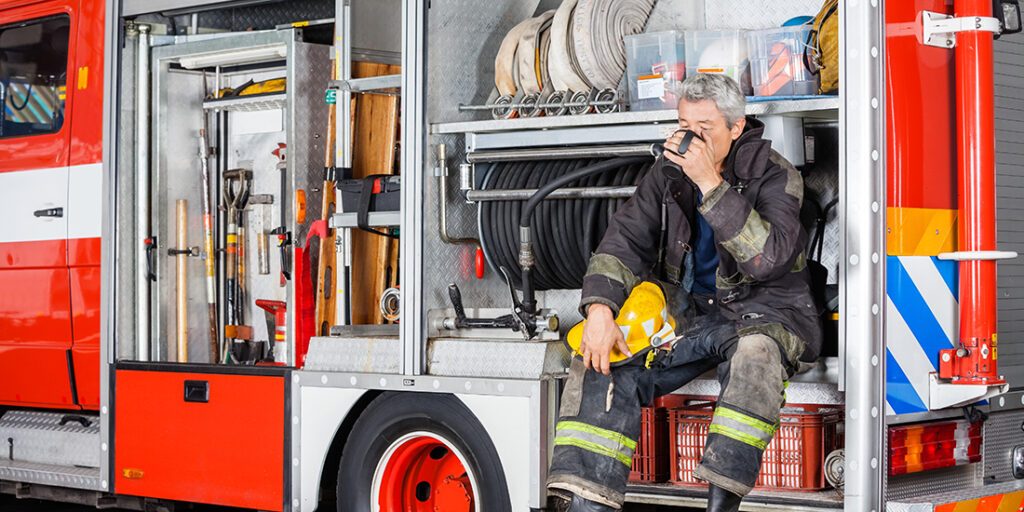FIRE

Physical and Mental Injuries in First Responders: Why Wait?
- Pascal Rodier
First responders undergo intense physical training to ensure they are physically prepared for emergencies. Yet despite the high-stress nature of their work, mental fitness is not given the same priority. To truly support first responders, mental wellness must be fully integrated into recruit training programs and proactively addressed throughout their careers.
MOST Recent

A Regional Approach to Public Safety Communications Planning
Charles (Charley) Bryson
April 16, 2025
Despite significant investments in public safety, critical training gaps for first responders persist. Regional planning committees, established by the FCC in the 1980s to manage public safety radio frequencies, remain key to improving interoperability. Learn about ongoing efforts—both regional and national—to close communication gaps and improve coordinated emergency response.

AI Software in 911 Dispatch Centers: An Innovative Solution
Tanya M. Scherr
April 2, 2025
Coupled with continued staffing challenges, mental health and work-life balance difficulties in emergency call centers are cause for concern. By allowing artificial intelligence (AI) to take some of the burden off from existing staff and leadership, focus can be returned to where it is most needed within each center.

Farm to Power: New Hazards in Rural Communities
Russ Kane
March 26, 2025
In the interest of reducing methane pollution and establishing a revenue stream for a renewable resource, dairy and livestock operators are creating mechanisms to produce compressed natural gas. This new technology reduces greenhouse gases but also introduces new hazards to rural communities.

Evolution of a Critical Emergency Response Tool
Jamie Hannan and Kristina Clark
January 8, 2025
During a derecho in May 2024, Texas agencies contacted and conducted wellness checks on residents with disabilities or with functional and access needs. One tool facilitated the process, sharing critical information about registrants to the emergency responders and planners who needed to know.
FIRE Archives
Security in and Around D.C.: Following the Informational Dots
Catherine L. Feinman
September 11, 2024
Preparing for any special event includes many unknowns. When an event involves national security, the stakes are even higher. Public safety agencies have been sharing
National Preparedness Month 2024: Talk About It
Ian Pleet
September 4, 2024
Each September, communities across the United States reexamine their preparedness goals and resources during National Preparedness Month. By educating and empowering individuals and families to
Dual-World Tabletop Exercises: Addressing Unmet Infrastructure Needs
Charles (Chuck) L. Manto
August 21, 2024
The U.S. critical infrastructure is vulnerable to many forms of cyber and electromagnetic threats. This article presents a new tabletop exercise concept for addressing these
Volunteers: Incident Management Assets or Liabilities?
David Wells
July 31, 2024
Responses are often only effective if volunteers and their teams are properly trained, prepared, motivated, and deployed. One faith-based organization has refined these criteria over
The Key Bridge Collapse – Through the Lens of Community Lifelines
Michael Prasad
July 17, 2024
The eight major elements of Community Lifelines use traffic-light-type color-coding to categorize the adverse impact status of a disaster. The article’s author has applied this
Five Key Domains of Incident Management
Aaron Clark-Ginsberg
July 10, 2024
Effective incident management is a set of activities, not policy box-ticking of doctrine that may or may not be followed. A new free toolkit based
Follow Us
Get Instant Access
Subscribe today to Domestic Preparedness and get real-world insights for safer communities.
FIRE
Most Recent

A Holistic Strategy for Responders’ Well-Being
Camilo Olivieri
May 7, 2025
First responders and emergency managers face constant, high-pressure stress from trauma, long hours, and critical decisions. This often leads to

A Regional Approach to Public Safety Communications Planning
Charles (Charley) Bryson
April 16, 2025
Despite significant investments in public safety, critical training gaps for first responders persist. Regional planning committees, established by the FCC

AI Software in 911 Dispatch Centers: An Innovative Solution
Tanya M. Scherr
April 2, 2025
Coupled with continued staffing challenges, mental health and work-life balance difficulties in emergency call centers are cause for concern. By

Farm to Power: New Hazards in Rural Communities
Russ Kane
March 26, 2025
In the interest of reducing methane pollution and establishing a revenue stream for a renewable resource, dairy and livestock operators
Fire Archives
Jane Doe – Responding to Vulnerable Patients
Catherine L. Feinman
June 26, 2024
Despite the prevalence of first responders encountering human trafficking victims, they are not always aware of the signs or proper handling of the situation to
Fentanyl Hazards and Detection
Ashley Bradley and Kristin Omberg
June 12, 2024
The deadly opioid epidemic in the United States does not stop at overdoses. It also poses life-threatening exposure to first responders who arrive on scene.
Mental Awareness to Enhance Preparedness
Andrew (Andy) Altizer
April 17, 2024
Emergency managers, public health officials, and first responders often stress the importance of physical fitness, but what about mental fitness? Without focused mental agility in
Dungeons and Disasters: Gamification of Public Health Responses
Michael Etzel and Michael Prasad
April 10, 2024
New technologies offer new ways to train personnel and exercise public health responses like COVID-19 and prepare response agencies for many other threats and hazards.
Interoperability During Mass Casualty Incidents
Charles J. Guddemi and Catherine L. Feinman
April 3, 2024
During a mass casualty incident, response agencies must be able to communicate in real-time. This means that interoperability plans need to include everyone involved in
Support and Planning Inside 911 Centers
Heather McGaffin
March 13, 2024
In an emergency, call 911. This simple instruction is easy to remember, but many do not know about the people, training, and technology required to
Follow Us
Get Instant Access
Subscribe today to Domestic Preparedness and get real-world insights for safer communities.



